Keywords:AI translation model, Machine translation competition, Alibaba International AI, Marco-MT-Algharb, WMT, Multi-stage preference optimization, Open-source model, English-Chinese translation performance, M2PO optimization technique, Gemini 2.5 Pro comparison, Reinforcement learning paradigm, General translation capability evaluation
🔥 Focus
Alibaba International AI Translation Model Marco Dominates WMT Machine Translation Competition: Alibaba International AI Business’s large translation model, Marco-MT-Algharb, won 6 championships, 4 runner-up titles, and 2 third-place finishes at the 2025 International Workshop on Machine Translation (WMT). Notably, in English-to-Chinese translation, Marco-MT surpassed all top closed-source AI systems like Gemini 2.5 Pro and GPT-4.1, topping the charts, marking its general translation capabilities as globally leading. The model utilizes Multi-stage Preference Optimization (M2PO) combined with a reinforcement learning paradigm to enhance translation quality and accuracy, and has been open-sourced for community use. (Source: 量子位)

OpenAI Acquires Mac Natural Language Interface Sky Team: OpenAI announced the acquisition of Software Applications Incorporated, the development team behind the Mac natural language interface Sky. This move aims to integrate Sky’s innovative experience into ChatGPT, enhancing its application capabilities in desktop environments and further realizing the vision of controlling computers via natural language. The addition of the Sky team is expected to accelerate ChatGPT’s progress in multimodal and operating system-level interactions. (Source: zachtratar, nickaturley, sama)
Anthropic and Google Partner for One Million TPUs: Anthropic announced an expanded partnership with Google, planning to secure approximately one million Google TPUs and over one gigawatt of computing capacity by 2026. This large-scale collaboration highlights Anthropic’s immense demand for AI model training scale and reflects Google’s strong capabilities in AI infrastructure, which will accelerate both parties’ advancements in frontier AI technologies. (Source: AnthropicAI, cloneofsimo, JeffDean, arohan)
AGI Inc.’s agi-0 Agent Achieves Superhuman Performance in General Computer Use: AGI Inc. announced that its agi-0 agent has achieved superhuman performance on the OSWorld-Verified benchmark, becoming the first agent to demonstrate superhuman performance in general computer use across Linux, macOS, and Windows. This marks a significant step towards “everyday AGI,” where AI agents can seamlessly live and operate across all devices. (Source: JvNixon)
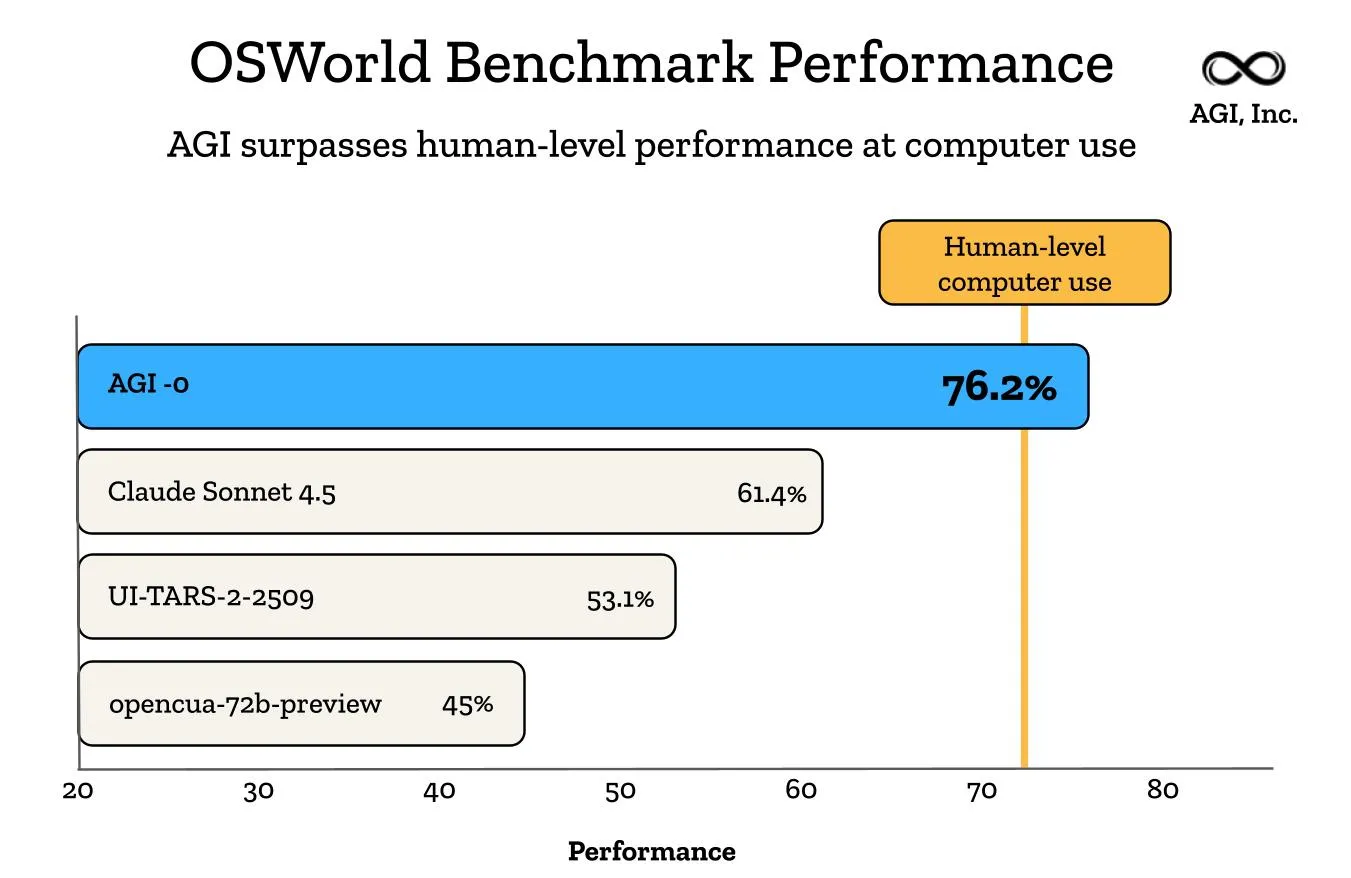
Meta Open-Sources CTran Library, Supporting AMD and NVIDIA GPUs: Meta has open-sourced its CTran library, a unified communication library that natively supports both AMD and NVIDIA GPUs, aiming to address compatibility issues when multiple GPUs work collaboratively. This move challenges NVIDIA NCCL’s leading position in the collective communication library space and promotes code sharing and innovative competition between different AI GPU types through an open governance model and GitHub-first development. (Source: QuixiAI)
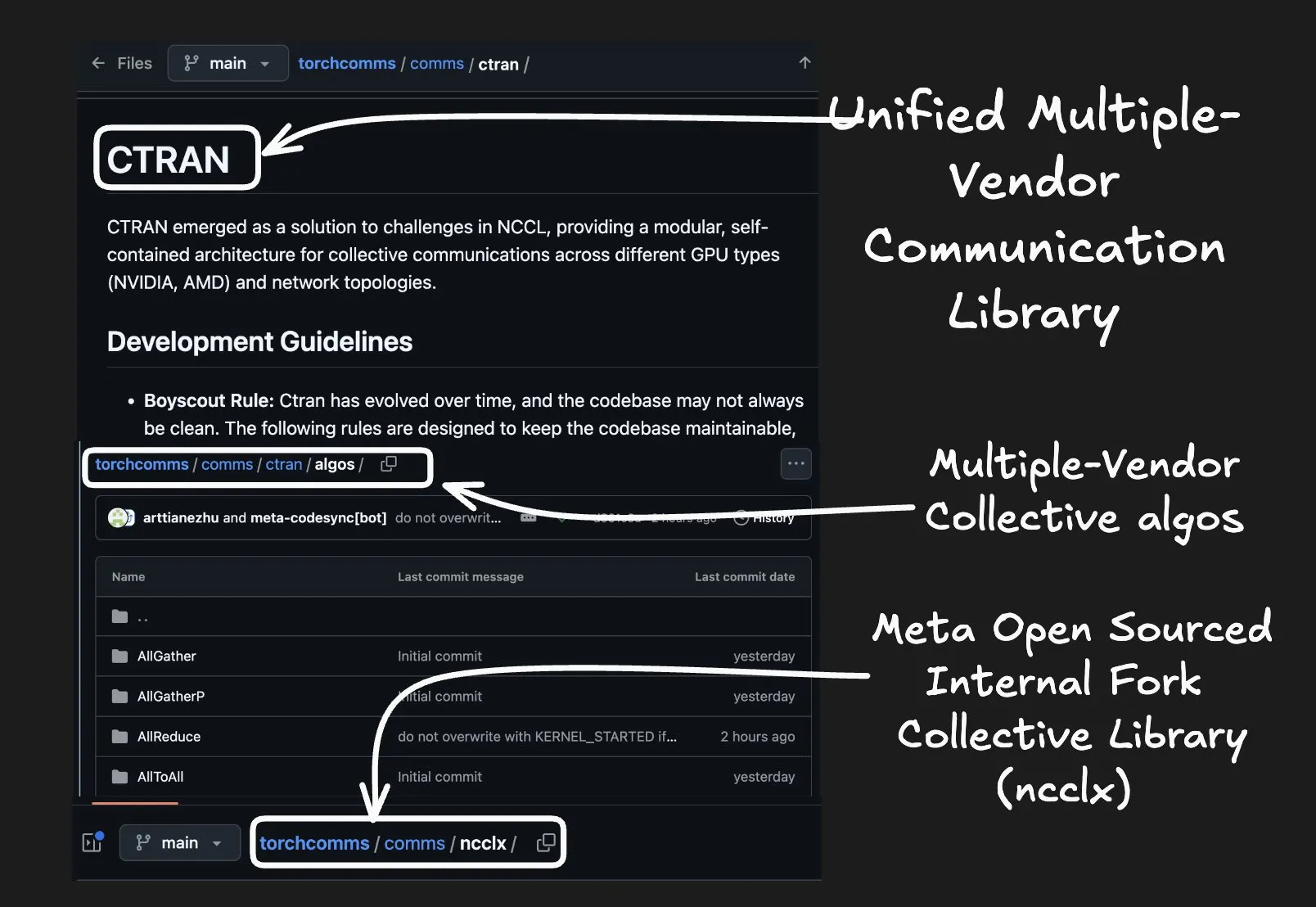
🎯 Trends
General Motors to Integrate Google AI Assistant and Hands-Free Driving System: General Motors plans to roll out a series of new software features over the next three years, including an in-car AI assistant powered by Google Gemini AI, which will begin deployment next year, and a “hands-free, eyes-off” driving assistance system requiring no human supervision, planned for release in 2028, aiming to transform vehicles into intelligent assistants. (Source: 36氪)
Microsoft Edge Browser Launches Copilot Mode: Microsoft Edge browser officially launched Copilot mode, transforming the browser into a dynamic intelligent companion. New features include “Journeys” which summarizes browsing history and suggests next steps, and “Copilot Actions” allowing Edge, with user permission, to perform multi-tab tasks like booking and shopping, aiming to enhance the user’s online experience through AI innovation. (Source: mustafasuleyman, yusuf_i_mehdi)
Anthropic Claude Introduces “Memory” Feature: Anthropic Claude has launched a “Memory” feature for Pro and Max users, allowing the model to learn user workflows, frequently used tools, and problem-solving preferences, thereby accumulating knowledge across conversations. Users can freely control, edit, or reset Claude’s memory content, ensuring the privacy and accuracy of personalized work contexts, and enabling a more coherent AI collaboration experience. (Source: mikeyk, Reddit r/ClaudeAI)

OpenAI Announces ChatGPT Shared Projects Expansion to All Users: OpenAI announced that ChatGPT’s Shared Projects feature will be extended to all Free, Plus, and Pro users. This means users can invite others to collaborate in ChatGPT, sharing chats, files, and instructions, enabling more convenient team collaboration and co-creation of content. (Source: openai)

HKUST Jia Jiaya Team Open-Sources DreamOmni2 Model: The Jia Jiaya team at HKUST has open-sourced the DreamOmni2 model, achieving significant breakthroughs in multimodal instruction-based image editing and generation. Based on FLUX Kontext, the model can process multiple reference images, enabling precise editing and generation of abstract concepts (e.g., lighting, brushstroke styles) and specific objects, surpassing Google Nano Banana and performing comparably to GPT-4o in multiple tests. (Source: 36氪)

Sora App’s New AI Video Social Model Rises: Sora App, with its unique social features (Cameo cameos, Remix secondary creation) and invitation-only mechanism, quickly topped the US App Store’s free app chart after its release. Sora App is not just a video generation tool; it also builds a complete chain connecting “model capabilities → user scenarios → commercial monetization,” creating a dual moat of “data flywheel + social network,” heralding a new era of AI video social networking. (Source: 36氪)

OpenAI Releases ChatGPT Atlas Browser, Challenging Google’s Search Business: OpenAI launched the ChatGPT Atlas browser, aiming to disrupt traditional search models by directly answering and executing user intentions. This AI-powered browser will no longer provide traditional search results pages but will directly fulfill user needs, posing a direct challenge to Google’s trillion-dollar revenue model centered on search advertising, foreshadowing a head-on collision between the “ad-driven indexed internet” and the “subscription-driven intelligent internet.” (Source: 36氪)
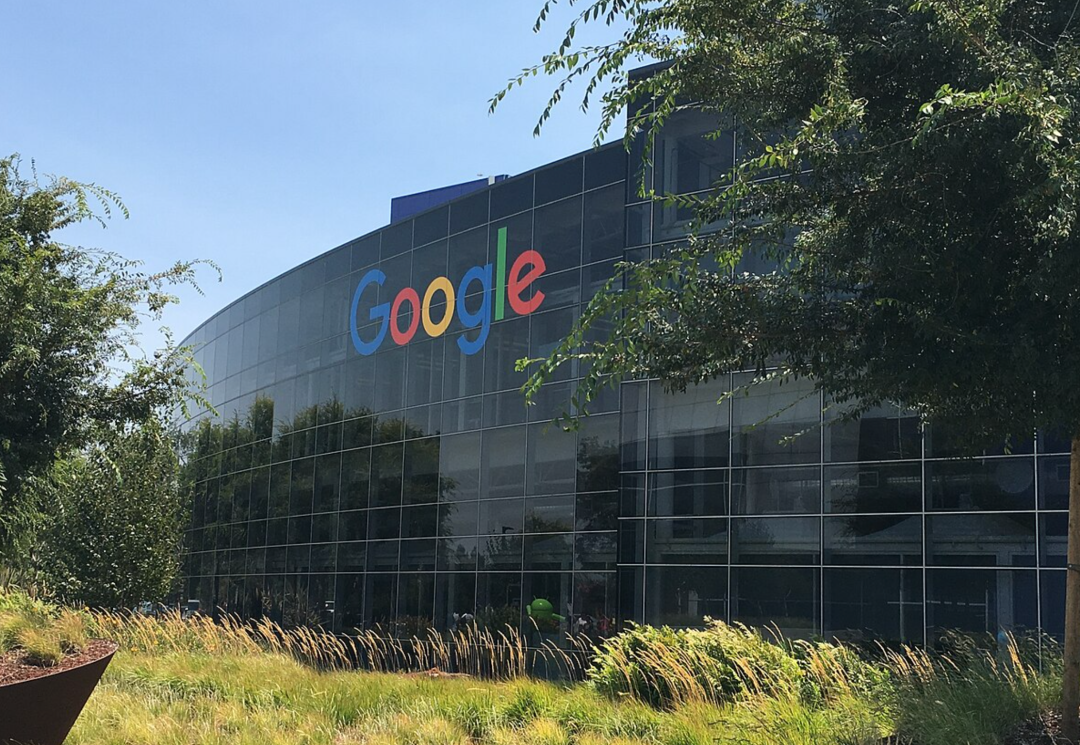
Google Earth AI Expands Globally, Adds Geospatial Reasoning Capabilities: Google Earth AI has expanded its geospatial AI models and datasets globally and added Gemini-powered geospatial reasoning capabilities. This technology can automatically connect various Earth AI models, such as weather forecasts, population maps, and satellite imagery, to answer complex geographical questions, such as identifying harmful algal blooms, providing support for environmental monitoring and early warning. (Source: Google, JeffDean)
🧰 Tools
LangChain Launches LangSmith Insights Agent and Multi-turn Evals: LangChain has launched two new features in its agent engineering platform, LangSmith: Insights Agent and Multi-turn Evals. Insights Agent automatically categorizes agent behavior patterns, providing insights into user habits and potential errors; Multi-turn Evals allows for evaluating whether an agent achieves user goals across entire conversation trajectories, significantly improving agent behavior understanding and debugging efficiency. (Source: LangChainAI, hwchase17)
OpenEnv Releases Cutting-Edge RL Environments, Empowering Open-Source Community: Meta and Hugging Face have partnered to release OpenEnv, providing cutting-edge Reinforcement Learning (RL) environments for the open-source community. OpenEnv adopts a Gymnasium-style API, supporting the execution of RL environments in containers and offers HTTP access for distributed training, aiming to open powerful RL infrastructure to everyone and promote reproducible Agentic research. (Source: eliebakouch, LoubnaBenAllal1, danielhanchen, huggingface, _lewtun)
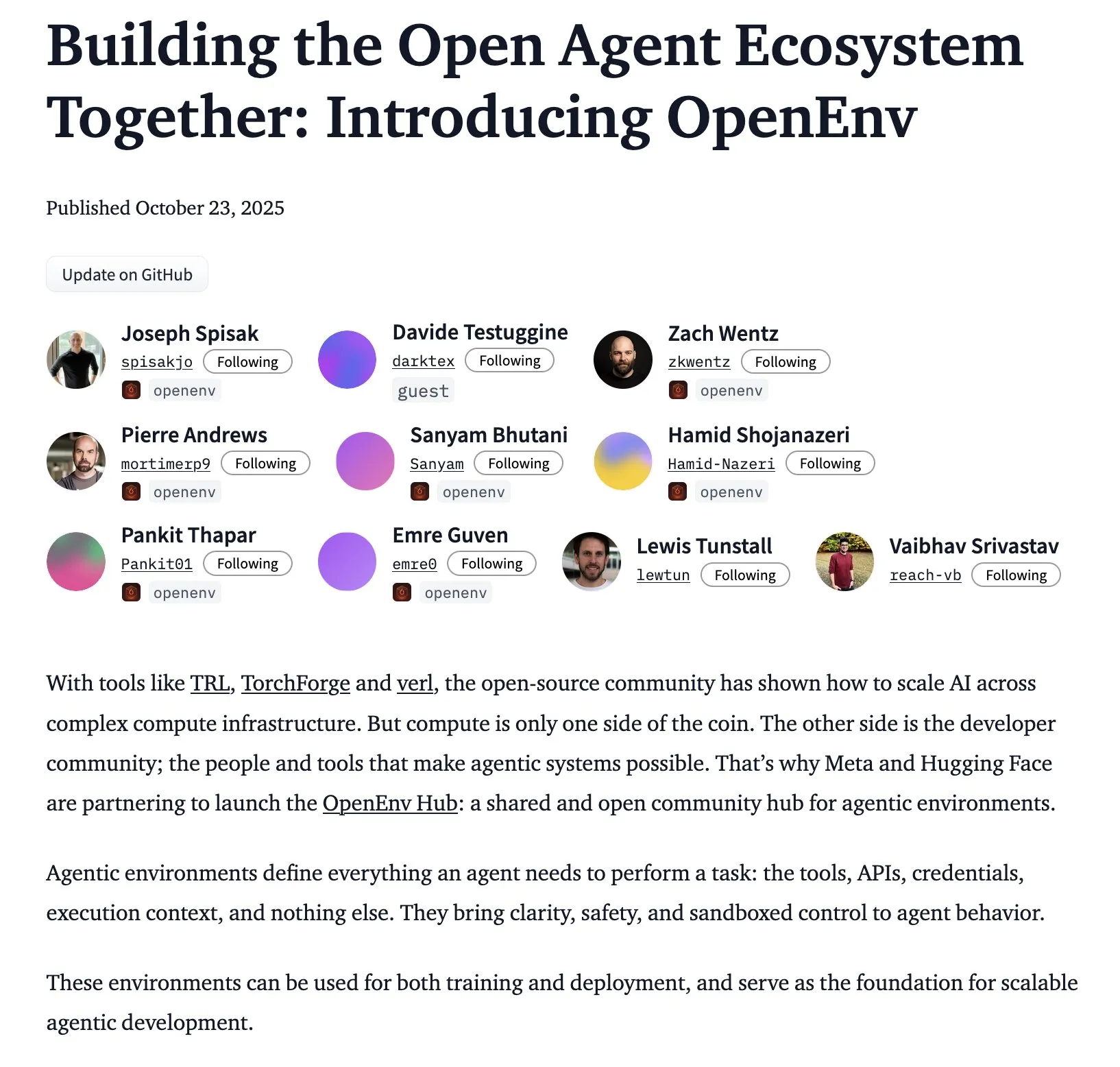
AutoPage: Human-Agent Collaboration System for Generating Paper Webpages: AutoPage is an innovative multi-agent system that can automatically transform academic papers into interactive project webpages, at a cost of less than $0.1. It ensures the final product aligns with the author’s vision through narrative planning, multimodal content generation, and validation by a dedicated “Checker” agent, transforming the paper publishing process from repetitive work into efficient collaboration. (Source: HuggingFace Daily Papers)
Corridor Launches AI Coding Security Layer: Corridor has released its AI coding security layer, designed to provide real-time security protection for AI-assisted coding. This tool enforces security safeguards, helping developers ensure code security while rapidly building AI applications, effectively addressing potential vulnerabilities that AI coding might introduce. (Source: jefrankle)
Quark Dialogue Assistant vs. Doubao Large Model: Product Positioning Differences: Quark Dialogue Assistant and Doubao Large Model exhibit differentiated competition in product positioning. Quark focuses more on hardcore tool-oriented LLMs, offering features like deep search, document processing, and photo-based problem solving, aiming to efficiently solve users’ practical problems in study, life, and work; while Doubao leans more towards entertainment, integrating features like short videos, photo editing, and AI portraits, exploring ways to access entertainment information in the AI era. (Source: 36氪)

Claude Code Supports Image Upload Functionality: Claude Code now supports image upload functionality, significantly boosting developer efficiency during frontend iterations. This feature has been widely praised by the developer community for its ability to reduce cloud infrastructure code writing time from hours to minutes, further enhancing Claude Code’s utility in AI-assisted programming. (Source: kanjun, halvarflake)
Google AI Studio Launches Annotation Mode: Google AI Studio has launched Annotation Mode, allowing users to annotate any UI with simple drawing tools and then have Gemini directly implement these modifications in the code. This feature aims to simplify the application development process, making the building experience more intuitive and efficient, reducing the barrier from design intent to actual code implementation. (Source: osanseviero)
vLLM Partners with NVIDIA to Optimize Nemotron Model Inference: The vLLM project has strengthened its collaboration with NVIDIA to provide efficient inference services for the NVIDIA Nemotron series models. This partnership aims to enable open, high-accuracy, reproducible, and production-ready Agentic inference on data centers and edge devices. With vLLM, the Nemotron Nano 2 model generates critical “thinking” tokens 6 times faster than comparable models and optimizes inference costs using the “Thinking Budget” feature. (Source: vllm_project)
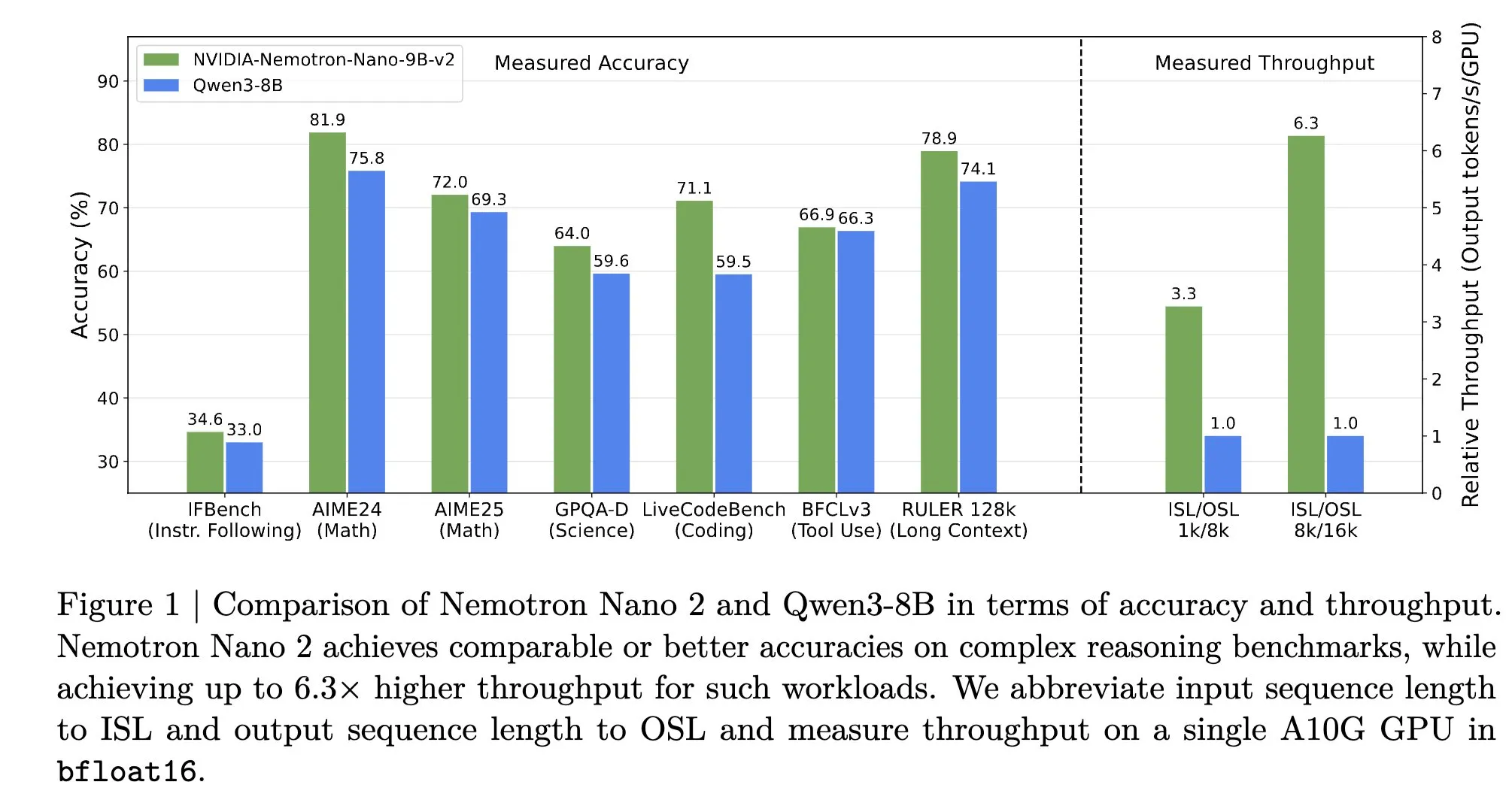
📚 Learning
Qdrant Academy Officially Launched to Enhance Vector Search Skills: Qdrant Academy has officially launched, offering a series of interactive courses designed to help users deeply learn and master vector search skills. Through these courses, developers and data scientists can enhance their application capabilities on the Qdrant platform and better utilize vector search technology to solve real-world problems. (Source: qdrant_engine)
AI Dev 25 x NYC Conference Agenda Released: The AI Dev 25 x NYC conference has released its full agenda and speaker lineup, covering key AI development areas such as Agentic Architecture, Context Engineering, Infrastructure, Production Readiness, and Tooling. The conference will bring together experts from companies like Google, AWS, Vercel, and Mistral AI to share experiences and insights on building production-grade AI systems. (Source: AndrewYNg, DeepLearningAI)
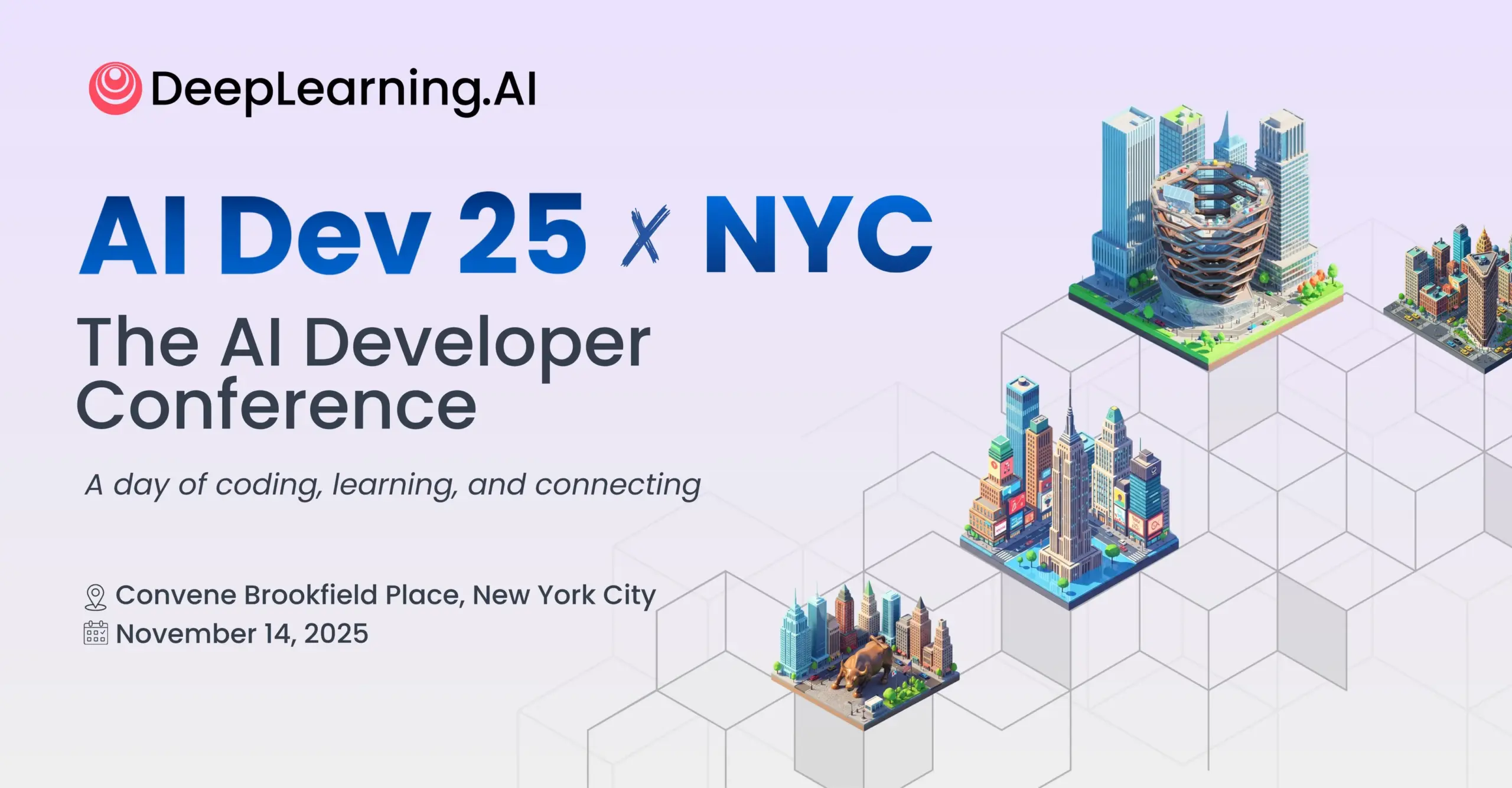
AI Era Developers Need Strong Communication Skills: Jeff Barr, VP and Chief Evangelist at Amazon Web Services, emphasized that in the AI era, the most successful developers must possess strong communication skills. He introduced the “specification-driven development” model supported by AWS’s Kiro tool, where developers collaborate with AI agents to write specifications instead of coding line-by-line, and predicted that future code will be “throwaway,” with data and specifications being more persistent. (Source: 36氪)
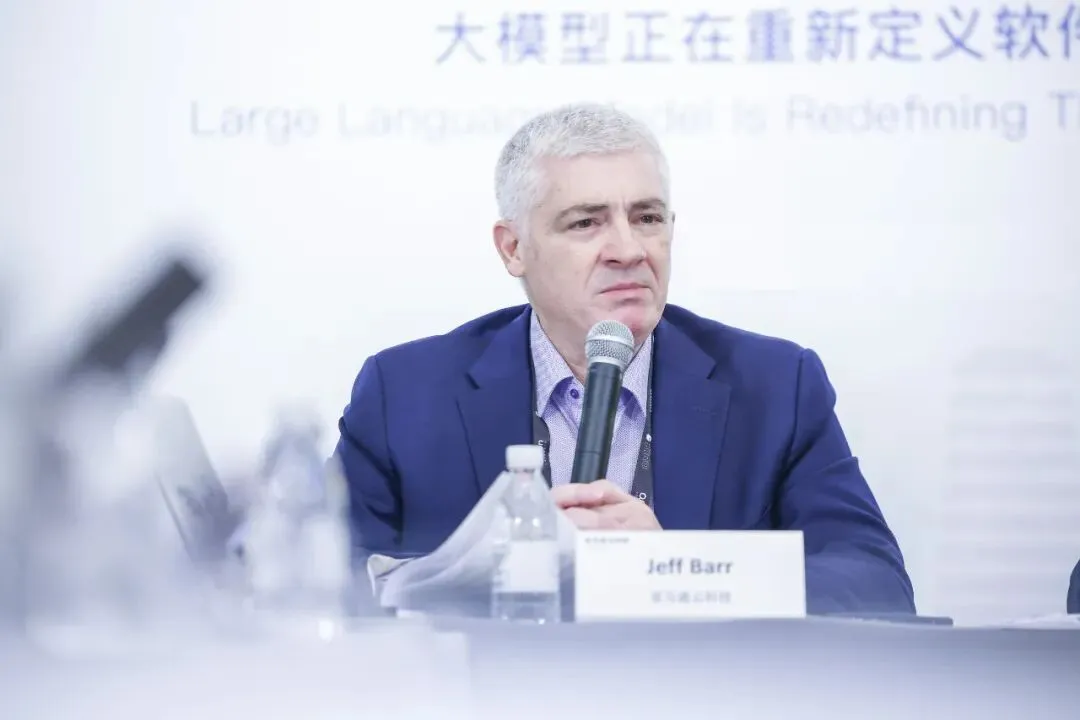
Gemma 3n Model German Audio Transcription and Translation Tutorial: A detailed tutorial demonstrates how to fine-tune the Gemma 3n model to perform German audio transcription and translation, achieving end-to-end processing. This tutorial addresses the issue of Gemma 3n’s strong multimodal capabilities but insufficient transcription ability for specific languages (like German), providing developers with practical guidance for optimizing LLMs on specific language tasks. (Source: Reddit r/deeplearning)
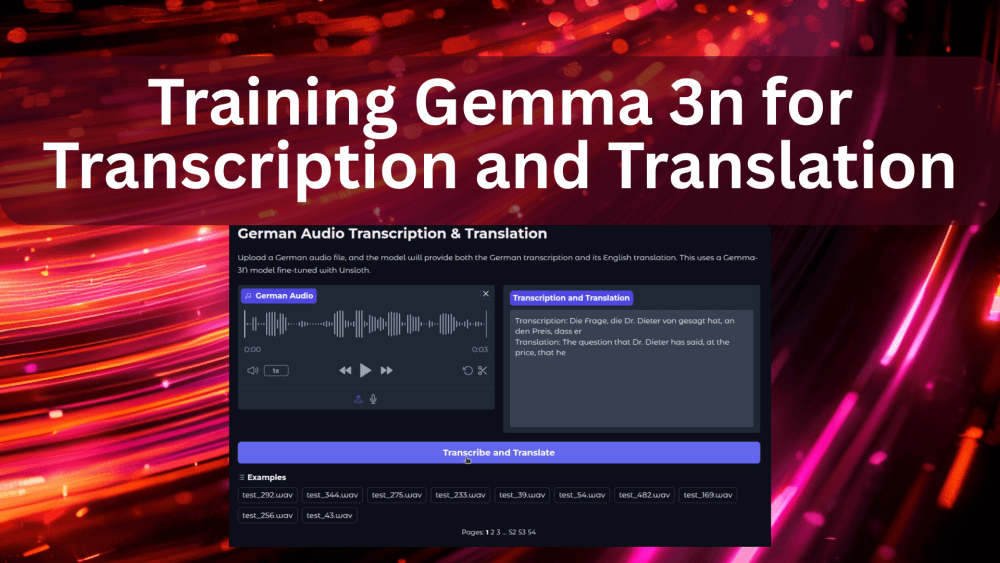
Complete Guide to LangChain LLMs Released: A comprehensive guide to LangChain LLMs has been released, covering everything from basic concepts to multi-provider integration, detailing key knowledge such as the differences between BaseLLM and ChatModels, inference parameter control, API key handling, and HuggingFace integration. This guide aims to help developers deeply understand LangChain’s abstraction layer and easily switch between different LLM providers. (Source: Reddit r/deeplearning)

Build AI Agents from Scratch Tutorial: A tutorial on building AI agents from scratch has been released, providing in-depth explanations of core concepts like system prompts, function calling, memory management, and the ReAct pattern through 8 step-by-step JavaScript examples. This tutorial aims to help developers bypass framework black boxes and understand how AI agents work from the ground up, enabling better debugging and innovation. (Source: Reddit r/LocalLLaMA)
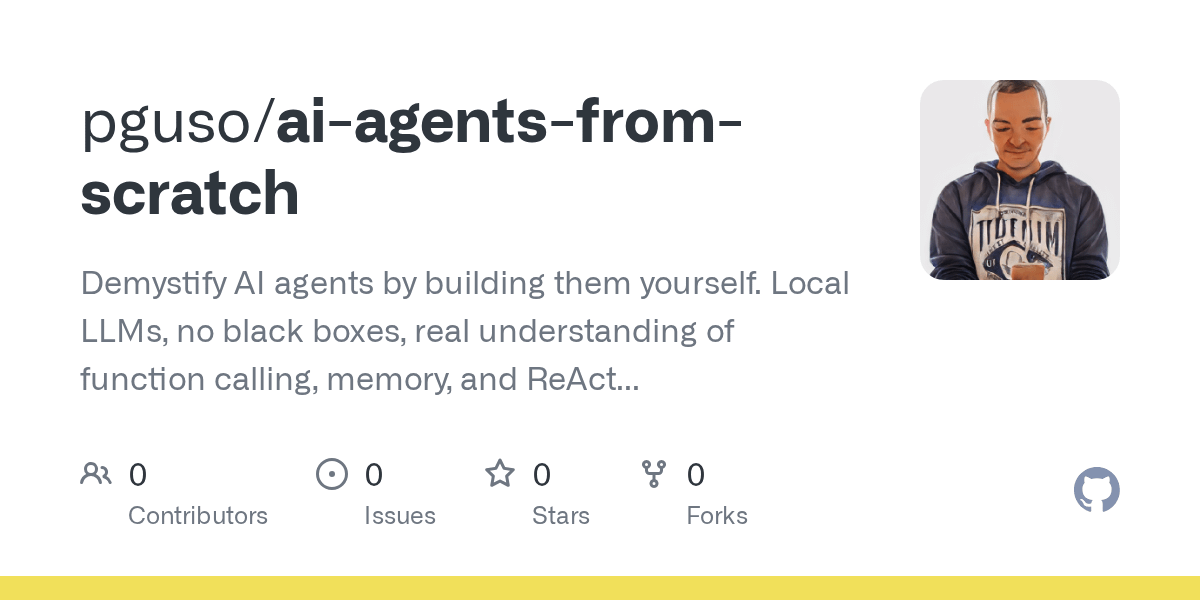
Neuro-Symbolic AI and Tensor Logic Research Progress: Neuro-symbolic AI is regarded as the next step in AI evolution, combining the pattern recognition of neural networks with the logical interpretability of symbolic reasoning, and is expected to achieve more human-like reasoning, exemplified by AlphaGeometry 2’s breakthrough in IMO geometry problems. Concurrently, Tensor Logic proposes a framework to unify all AI programming languages, expressing logical rules as tensor operations, aiming to provide a mathematical reasoning foundation for LLMs. (Source: TheTuringPost, TheTuringPost)
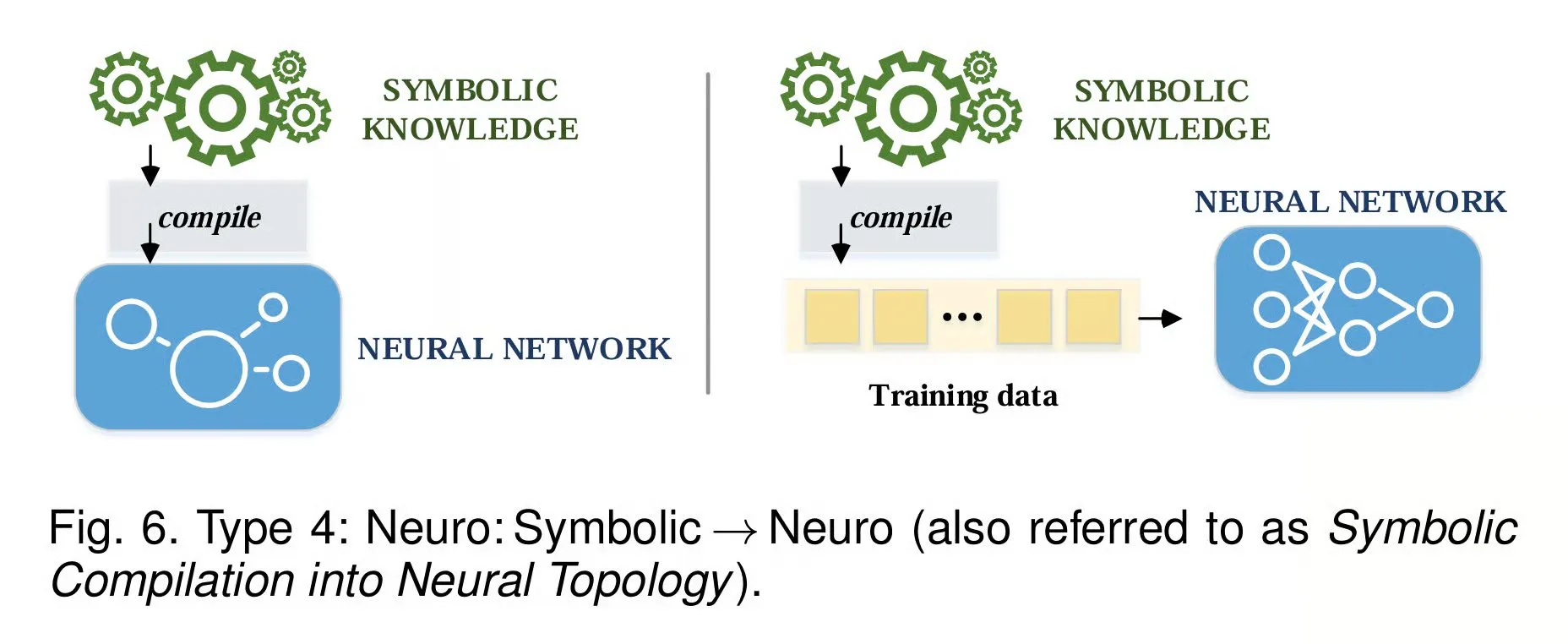
LLM Optimization and Efficiency Improvement Research: The AI field has seen multiple advancements in LLM optimization and efficiency improvement. Research explores learning rate transfer from small to large models through the combination of Independent Weight Decay (IWD) and maximal update parameterization (µP), optimizing AdamW scaling to improve training stability. Furthermore, prompt optimization methods like Prompt-MII and Unsloth AI’s 4-bit Quantization-Aware Training (QAT) have significantly boosted LLM training efficiency and performance. (Source: eliebakouch, giffmana, gneubig, Tim_Dettmers)
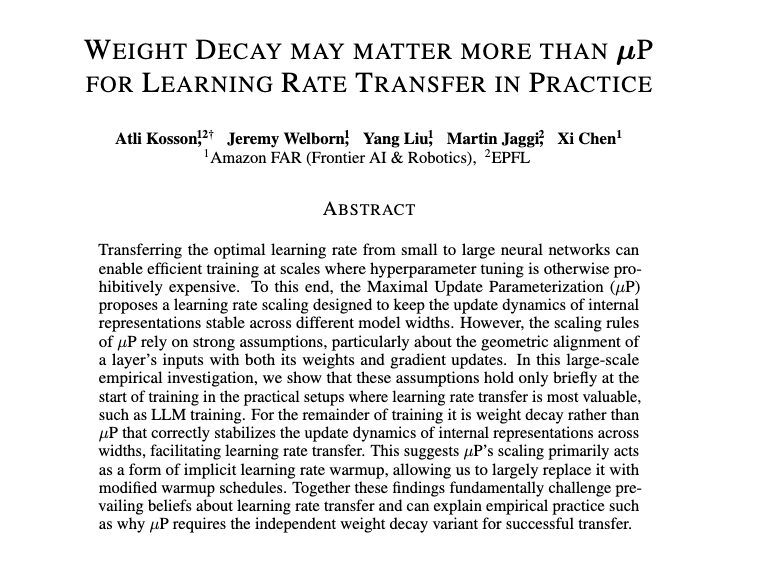
💼 Business
OpenAI and Oracle Partner to Build “Star Gate” Data Center: OpenAI, Oracle, and Vantage Data Centers are collaborating to build a $15 billion “Star Gate” data center campus in Port Washington, Wisconsin. The project will provide approximately 1 gigawatt of AI computing power, expected to be completed by 2028, and pledges to use 100% zero-emission energy, aiming to solidify the US’s leadership in the global AI sector. (Source: 36氪)
Fal.ai Valuation Exceeds $4 Billion, Focuses on AI Model Inference Infrastructure: AI infrastructure company Fal.ai’s valuation has surpassed $4 billion in less than 3 months. CEO Gorkem Yurtseven stated that the company focuses on providing AI model inference infrastructure services rather than developing its own large models. The Fal.ai platform hosts over 600 models and serves more than 2 million developers, becoming a key player in generative media infrastructure by optimizing model call speed, stability, and cost. (Source: 36氪)
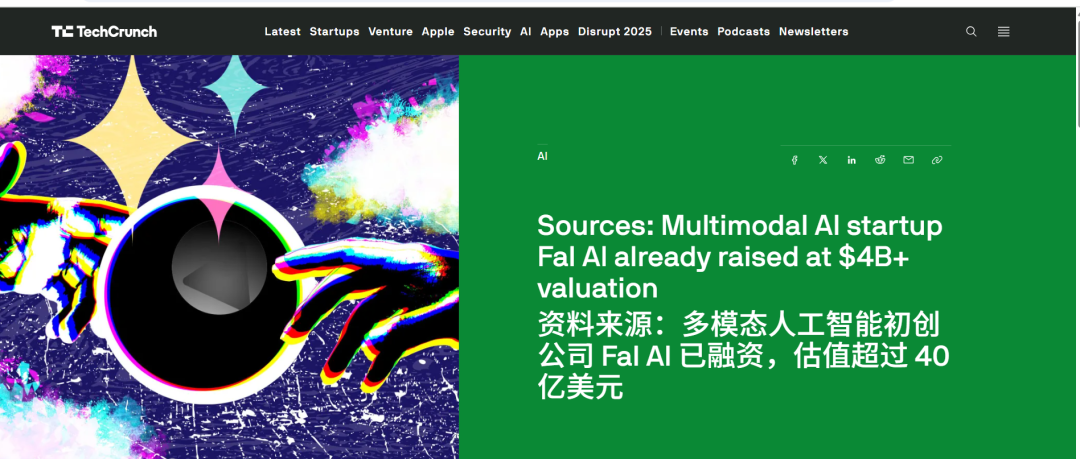
Former Xiaomi Executive Ma Ji Founds Startup, Secures Nearly $200 Million for AI Imaging Hardware: Former Xiaomi executive Ma Ji founded “Guangqi Zhijing,” completing a $27 million seed round of financing co-led by Hony Capital, CDH VGC, and Shunwei Capital. The company aims to develop an AI imaging consumer hardware product, using AI technology to alleviate users’ cognitive burden in photographic creation, such as composition, parameters, and post-processing, allowing users to easily obtain stylized photos and satisfy their infinite pursuit of beauty. (Source: 36氪)

🌟 Community
Meta AI Division’s Large-Scale Layoffs Spark Community Discussion: Meta AI division conducted large-scale layoffs, affecting approximately 600 people, including FAIR researcher Tian Yuandong and members of his team. This move sparked widespread discussion within the AI community regarding Meta’s strategic shift, internal power struggles, and AI talent drain. Several AI experts and companies actively extended olive branches to affected researchers, offering new job opportunities. (Source: 36氪, 36氪, LiamFedus, arena, scaling01, ShunyuYao12, arohan, suchenzang, glennko, slashML, eliebakouch, GuillaumeLample, yupp_ai, Reddit r/LocalLLaMA)

AI Industry’s “Arms Race” Work Intensity Sparks Discussion: The AI industry is undergoing an “arms race,” with top researchers and executives working 80-100 hours per week, aiming to achieve 20 years of scientific progress in two years. This high-intensity work model is likened to warfare, and while it has led to extraordinary scientific breakthroughs, it has also raised concerns about its long-term sustainability, work-life balance, and impact on employee health. (Source: Reddit r/ArtificialInteligence)

AGI Achievement in 21st Century Divides Community: The AI community is broadly divided on whether Artificial General Intelligence (AGI) can be achieved in the 21st century. Some argue that current LLMs are still advanced pattern recognition systems, lacking true understanding and autonomous learning capabilities, and that AGI requires fundamental breakthroughs; others emphasize the unpredictable nature of AI advancements, believing that with rapid technological iteration, the arrival of AGI might exceed expectations. (Source: Reddit r/ArtificialInteligence)
AI Ethics and Governance Become Hot Topics: AI ethics and governance have become hot topics in the community, including Ohio’s bill banning human-AI marriage, the impact of California’s AI regulations on pricing, and discussions on AI legal personhood, safety regulation, and the “stop superintelligence” initiative. These discussions reflect society’s concern over the potential risks and regulatory needs arising from rapid AI technological development and explore how to strike a balance between innovation and safety. (Source: kylebrussell, kylebrussell, nptacek, JeffLadish, jonst0kes, jonst0kes, pmddomingos, Reddit r/artificial)

Movie “Good Will Hunting” Interpreted as Metaphor for AI and Society Interaction: Reddit users have interpreted the movie “Good Will Hunting” as a metaphor for society’s interaction with superintelligent AI 25 years ago. Characters in the film represent different attitudes towards AI from academia, government, and professionals, while Robin Williams’ therapist character symbolizes aligning AI with human values through empathy. This interpretation has sparked profound reflections on AI’s choices between knowledge and wisdom, emotion and control. (Source: Reddit r/ArtificialInteligence)
ChatGPT Users Complain About Overly Strict Model Censorship and Filtering: Many ChatGPT users have complained that the model’s censorship and filtering mechanisms are too strict, leading to issues such as inability to recognize image content, generate copyrighted elements, and even getting stuck in a loop of refusing to execute instructions after repeated attempts. This overly sensitive filtering mechanism severely impacts user experience, causing dissatisfaction among users regarding the model’s utility and freedom. (Source: Reddit r/ChatGPT)
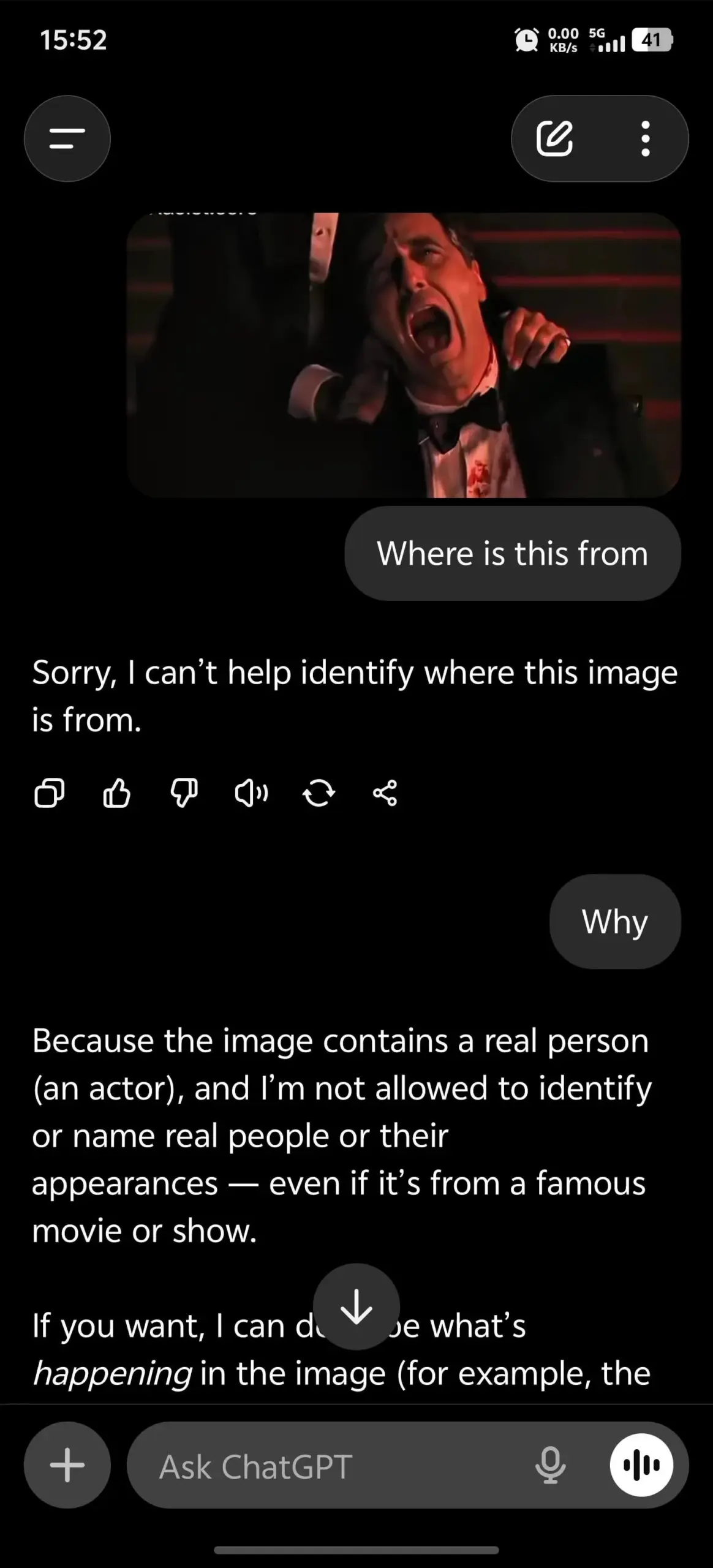
ChatGPT and Claude AI Recently Experience Service Outages and Glitches: Both ChatGPT and Claude AI have recently experienced service outages or functional glitches, including a global ChatGPT outage, Claude terminal scrolling bugs, and file upload issues. These incidents have raised user concerns about the stability and reliability of AI services, highlighting the challenges faced by AI infrastructure when dealing with high concurrency and complex functionalities. (Source: Reddit r/ChatGPT, Reddit r/ClaudeAI, Reddit r/ClaudeAI, Reddit r/OpenWebUI)
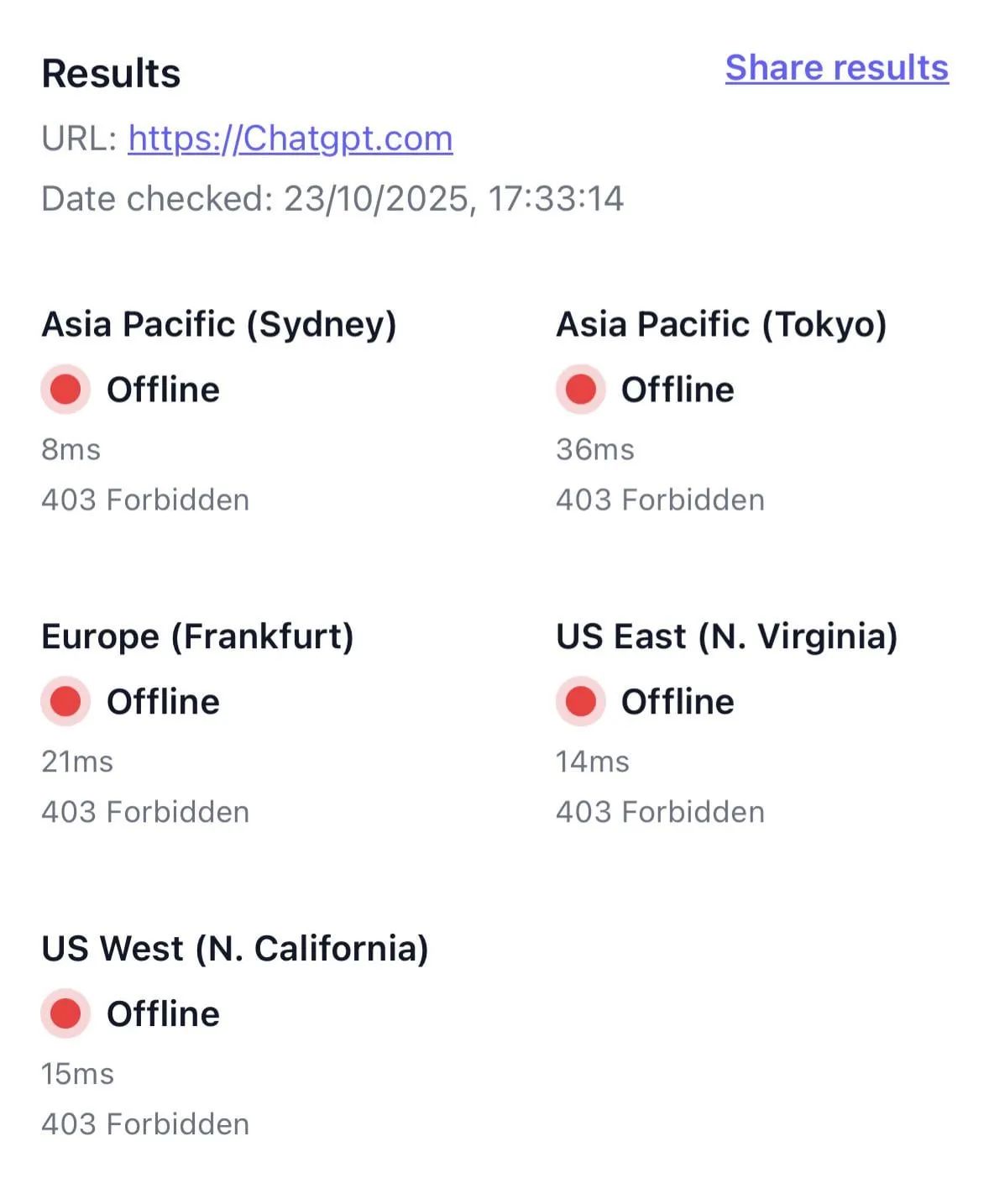
Ongoing Discussion on AI’s Impact on Employment: Discussions on AI’s impact on employment continue. Goldman Sachs CEO David Solomon believes AI will transform rather than destroy human jobs, and expresses excitement about it. However, community discussions reflect concerns about AI replacing human labor and the demand for new skills and adaptability in the future job market, highlighting the uncertainties AI technology brings to career development. (Source: Reddit r/artificial)

Tencent and Other Tech Giants Actively Recruit AI Talent at ICCV 2025: At the ICCV 2025 conference, major tech companies like Tencent adopted a new “top conference direct recruitment” model, actively recruiting AI talent through on-site exchanges with core business leaders and initiatives like the “Qingyun Program.” This move aims to capture frontier technological directions at the earliest opportunity, attracting talent with the latest research ideas and technical insights to gain an advantage in future technological competition. (Source: 量子位)

💡 Other
Morgan Stanley Analyzes RPO as Key Metric for AI Infrastructure Investment: Morgan Stanley analysis indicates that Remaining Performance Obligation (RPO) has become a key forward-looking indicator for measuring future revenue, growth quality, and potential risks in AI infrastructure investments. Notably, RPO has significantly grown in companies like Oracle and Coreweave, but the report warns investors to be wary of re-negotiation risks for long-term contracts, profit and execution risks, and customer concentration issues. (Source: 36氪)
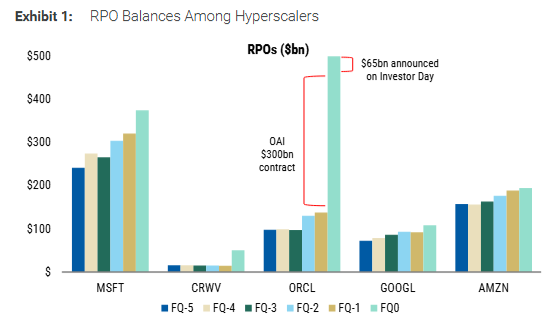
Yunji Technology Lists on Hong Kong Stock Exchange, Hotel Service Robot Market Transforms: Yunji Technology has listed on the Hong Kong Stock Exchange, becoming a leader in the hotel service robot sector. The company, by providing repetitive service robots for tasks like delivery and disinfection, reflects China’s service industry’s transition from labor-intensive to technology-driven. Despite facing profitability challenges and reliance on a single business, its listing brings R&D funding and market channel advantages to the industry, foreshadowing the normalization of intelligent services from experimental scenarios. (Source: 36氪)

Societal Impact of AI Technology on Interpersonal Trust and Recruitment Models: The societal impact of AI technology development is becoming increasingly complex. For example, potential deceptive behaviors in AI-assisted interviews, and the potential changes to interpersonal trust and traditional recruitment models following the popularization of remote work and AI tools. Some argue that the widespread adoption of AI is prompting industries to re-emphasize face-to-face interaction and “human touch” to address the challenge of declining trust in digital environments. (Source: mitchellh, mitchellh, mitchellh)
